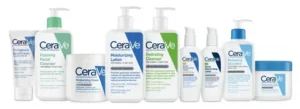Introduction
In the world of skincare, hydration and protection are cornerstones for maintaining healthy, resilient skin. While countless ingredients claim to improve skin health, some stand out for their exceptional protective and hydrating properties.
Ceramides, honey, and glycerin are three powerhouse ingredients renowned for their roles in keeping skin moisturized, soft, and safeguarded against environmental stressors. Each of these ingredients works in unique ways, yet together, they offer a robust defense for skin that’s hydrated, balanced, and resilient.
In this guide, we’ll dive deep into the skin defense benefits of ceramides, honey, and glycerin. From bolstering the skin’s natural barrier to imparting deep moisture, these ingredients can significantly impact skin health.
By understanding how each component works, you’ll be empowered to choose products and practices that harness their full potential. Let’s explore the essential benefits of ceramides, honey, and glycerin for skin hydration and protection.

The Science of Skin Defense: Why Hydration and Protection Matter
The skin’s primary function is to act as a protective barrier against environmental pollutants, UV rays, and pathogens. But daily exposure to harsh elements, from weather changes to air pollution, can weaken the skin’s barrier, leading to dehydration, irritation, and premature aging. Maintaining adequate hydration isn’t just about surface-level moisturization; it’s about sustaining the integrity of the skin barrier so it can effectively defend itself.
Skin hydration is crucial because water plays a central role in cell function, elasticity, and nutrient delivery. Well-hydrated skin is better equipped to repair itself, while a compromised barrier is susceptible to external damage. To counter these effects, ceramides, honey, and glycerin each provide a unique form of defense, delivering hydration and fortification.
Ceramides – Fortifying the Skin Barrier
What Are Ceramides?
Ceramides are lipids (fat molecules) that are naturally present in the skin and make up about 50% of its outermost layer, the stratum corneum. Acting as the “glue” that holds skin cells together, ceramides create a protective barrier that prevents moisture loss and keeps environmental pollutants at bay. This lipid layer is essential for skin defense, as it locks in hydration and allows the skin to remain resilient against irritation and dryness.
The Benefits of Ceramides for Hydration and Protection
- Strengthening the Skin Barrier: When the skin barrier is weakened, moisture escapes, leading to dryness and sensitivity. By reinforcing this barrier, ceramides reduce water loss, ensuring lasting hydration.
- Reducing Sensitivity and Irritation: Many skin conditions like eczema, rosacea, and acne are linked to a compromised skin barrier. Ceramides help calm these conditions by sealing moisture and creating a more resilient skin barrier.
- Anti-Aging Benefits: As we age, our natural ceramide levels decrease, making the skin more prone to dryness and wrinkles. Regular application of ceramide-rich products helps replenish these lipids, minimizing fine lines and keeping skin supple.
How to Use Ceramides in Your Skincare Routine
Ceramide-enriched creams, serums, and moisturizers are available for every skin type. For best results, use ceramide products after cleansing, and pair them with other moisturizing ingredients like hyaluronic acid or glycerin to maximize hydration.
Honey – Nature’s Hydrator and Healer
Why Honey Is Beneficial for Skin
Honey is more than a natural sweetener; it’s a powerhouse skincare ingredient that has been revered for centuries for its healing and moisturizing properties. Honey is a humectant, meaning it attracts moisture to the skin, and it also boasts antimicrobial and antioxidant properties, making it perfect for a variety of skin needs.
The Benefits of Honey for Hydration and Protection
- Moisture Retention: Honey’s humectant properties attract and retain moisture, keeping the skin hydrated without clogging pores. This makes it ideal for all skin types, especially dry or combination skin.
- Antimicrobial and Healing Properties: Honey’s natural antimicrobial properties make it an effective ingredient for soothing and treating minor wounds, inflammation, and acne. Manuka honey, in particular, is known for its powerful antibacterial qualities.
- Rich in Antioxidants: Antioxidants help protect the skin from free radicals, which contribute to aging and damage. Honey’s antioxidant profile defends the skin, reducing signs of premature aging and creating a natural shield against environmental pollutants.
- Soothing Sensitive Skin: The anti-inflammatory properties of honey can reduce redness, irritation, and discomfort, making it an excellent choice for those with sensitive or reactive skin.
Using Honey in Your Skincare Routine
For a gentle cleanse or hydration boost, apply raw honey directly to the skin and leave it on as a mask for 10-15 minutes before rinsing. Honey can also be found in many cleansers, masks, and moisturizers, where it works harmoniously with other ingredients like aloe and glycerin.
Glycerin – The Ultimate Hydrating Agent
Understanding Glycerin’s Role in Skin Health
Glycerin is one of the oldest and most trusted ingredients in skincare, prized for its incredible ability to retain moisture. A humectant like honey, glycerin draws water from deeper layers of the skin and the environment, ensuring skin remains plump and hydrated. Its compatibility with all skin types makes it a universal ingredient for hydration and skin defense.
The Benefits of Glycerin for Hydration and Protection
- Long-Lasting Hydration: By drawing moisture into the skin and keeping it there, glycerin helps maintain hydration levels over time. This leads to smoother, softer skin and an overall healthier complexion.
- Improving Skin Elasticity: Consistent hydration from glycerin use can improve the elasticity and resilience of the skin, which contributes to a youthful appearance and reduced fine lines.
- Boosting Skin Barrier Function: Like ceramides, glycerin plays a role in fortifying the skin barrier, preventing moisture loss and protecting against irritants.
- Reducing the Effects of Harsh Weather: Whether it’s dry indoor heating or cold, windy weather, glycerin provides a layer of hydration that helps the skin withstand challenging environmental conditions.
How to Incorporate Glycerin into Your Skincare Routine
Look for glycerin-based serums and moisturizers, which are easy to layer with other products. Apply glycerin products on damp skin after cleansing to maximize moisture retention.
Maximizing Skin Health with Combined Use of Ceramides, Honey, and Glycerin
While ceramides, honey, and glycerin each offer unique benefits, using them together can create a comprehensive skincare routine that targets all aspects of skin hydration and defense. Here’s how they can be combined for optimal results:
- Layering for Enhanced Hydration: Start with a glycerin-based serum to draw moisture into the skin, follow with a honey-enriched product for additional hydration and antimicrobial benefits, and finish with a ceramide moisturizer to seal everything in.
- Addressing Specific Skin Concerns: If dealing with acne or irritation, focus on honey and ceramides to soothe and repair the skin barrier. For dryness, layering glycerin with ceramides will help keep moisture locked in.
- Day and Night Use: In the morning, use lightweight products with glycerin to avoid a heavy feeling under makeup. At night, you can use richer ceramide creams and honey masks to repair and hydrate as your skin rests.
- Adjusting for Seasonal Needs: During colder months, increase your use of ceramides and glycerin for extra moisture retention. In warmer months, a focus on honey’s antimicrobial benefits can keep skin balanced.
Conclusion
The benefits of ceramides, honey, and glycerin make these ingredients indispensable for those looking to improve their skin’s hydration and protection.
Whether you’re new to skincare or a seasoned enthusiast, incorporating these ingredients can significantly improve your skin’s resilience, softness, and radiance. Each of these components supports skin defense in unique ways, and together, they offer a balanced approach that targets hydration, barrier protection, and soothing.
Now, it’s your turn! What are your experiences with ceramides, honey, or glycerin? Have you noticed any improvements in hydration or protection? Share your thoughts, favorite products, or tips in the comments below! Let’s keep the conversation going.





